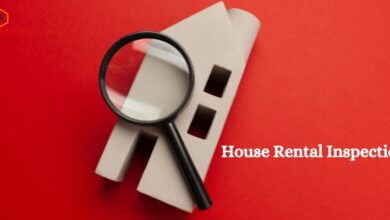6 Tips for First-Time Commercial Property Investors

Investing in commercial real estate isn’t just about buying property; it’s about becoming an entrepreneur.
Every investor becomes a business owner, which means they need to have a solid plan and strategy behind their investment.
Let’s take a look at these six tips for first-time commercial property investors.
1. Work With The Professionals
Becoming a successful commercial real estate investor is all about learning what the professionals know. The best way to do this is to work with a commercial property management company
These people have years of experience under their belt to be able to provide you with the highest profits while alleviating the responsibility of handling lease agreements or tenant retention.
This is especially important as a first-timer because there’s a lot to learn and your personal money is on the line.
2. Learn About The Commercial Real Estate Market
You don’t want to invest money in something you know nothing about. While you may have experience buying a house, the commercial real estate market is nothing like residential real estate.
Elements such as net operating income (NOI), cap rate, or even being able to recognize what is considered a good deal within your desired market all require having knowledge and expertise.
This is where a commercial property management company can help new investors.
3.Choose Your Market
There are four main markets when choosing a commercial property: office space, industrial, multi-family rentals, and retail.
From there, you can narrow it down to what type of industries you want to be focused on, such as apartments, restaurants, or manufacturing.
Within those markets, you have to look for various amenities that could set your property apart from competitors. Things like location, parking, nearby transportation options, and security can all play a role for potential tenants.
Start doing your research as to what type of market you want to invest in before you start touring potential properties.
4.Create a Business Plan
There is no successful business without having a proper plan in place.
Before you’re able to secure any funding from a lender or potential investor, they’re going to want to see a plan in place. The main goal of your business plan is to show how you intend to generate revenue.
Your business plan will include broader topics such as how you want to see your business grow, what your overall goals are, and how you intend to alleviate potential challenges.
The plan will then look at more specifics, such as your target audience if you intend to work with a real estate developer, business model, market summary, and your financial needs.
5.Research Types of Commercial Real Estate Loans
There are several different types of loans you can apply for when you invest in commercial property. An SBA (Small Business Administration) Loan is one of the most common and offers two different types of loan programs to finance your business.
SBA 7(a) Loans are the most common, whereas SBA 504 Loans are less common since they’re not entirely funded by private lenders.
SBA 504 Loans are provided through a nonprofit corporation by a CDC (Certified Development Company).
Their goal is to promote economic development within a specific community and will finance up to 40% of your business and the lender will contribute another 50%, leaving the final 10% up to you or another personal investor.
Other types of commercial property loans may include permanent loans, hard money loans, bridge loans, or blanket loans. Do your research to figure out which is the best match for your commercial property investment.
Read more: Do I Need an Accountant for My Rental Property? (The Answer Is Yes)
6.Secure Your Financial Backing
Once your business plan is ready to present to potential lenders and investors, it’s time to secure your funding. This will require you to have some of your money invested in your business.
A general rule of thumb is to provide a 20% downpayment towards your commercial property. This means you’ll need to either have someone ready to invest the 20% or you’ll need to provide it yourself.
Take a look at your current savings or larger items you may have equity in.
See what you can realistically put into your business venture without completely bankrupting yourself.
Remember, there are going to be financial obligations such as repairs, general maintenance, and renovations needed for your property that go beyond the 20% downpayment. Make sure that you account for these as well.
Summary
Investing in commercial real estate as a beginner might seem daunting, but it’s certainly not impossible.
The most important thing you can do is to research as much as you can about this type of business venture and work with a professional commercial property management company rather than trying to do it all on your own.






